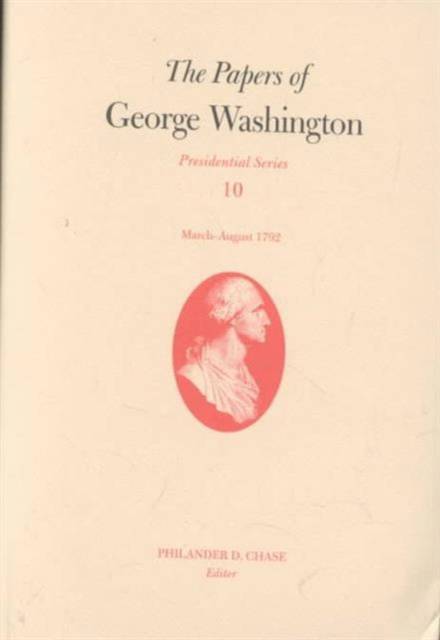
- Retrait gratuit dans votre magasin Club
- 7.000.000 titres dans notre catalogue
- Payer en toute sécurité
- Toujours un magasin près de chez vous
- Retrait gratuit dans votre magasin Club
- 7.000.0000 titres dans notre catalogue
- Payer en toute sécurité
- Toujours un magasin près de chez vous
Description
Volume 10 of the Presidential Series continues the fourth chronological series of The Papers of George Washington. The Presidential Series, when complete, will cover the eight precedent-setting years of Washington's presidency. These volumes present the public papers written by or sent to Washington during his two administrations. Among the documents are Washington's messages to Congress, addresses from public and private bodies, applications for office and letters of recommendation, and documents concerning diplomatic and Indian affairs. Also included are Washington's private papers, consisting of family correspondence, letters to and from friends and acquaintances, and documents relating to the administration of his Mount Vernon plantation and the management of the presidential household.
In the period covered by volume 10, the spring and summer of 1792, Washington was busy dealing with a host of foreign and domestic issues. In response to General Arthur St. Clair's disastrous defeat on 4 November 1791, Washington ordered both the preparation of a renewed offensive against the hostile Indian tribes in the Northwest Territory and an attempt to secure peace without further recourse to arms. The first initiative necessitated the selection of a new commanding general and the appointment or promotion of a large number of junior officers. The second induced Washington to invite delegations from several nonhostile Indian nations to Philadelphia in the hopes that they either would support the American military effort or would convince their brethren to make peace with the United States. In addition, both the promulgation of a new French constitution and the recent arrival of the British plenipotentiary George Hammond--who had instructions to settle the outstanding difficulties arising from the Treaty of Paris of 1783 and lay the groundwork for improved Anglo-American commercial relations--required careful handling. Domestically, Washington's veto of the congressional Apportionment Act in April 1792 on the grounds that it was unconstitutional marked the first use of the presidential veto in American history. In the wake of Pierre L'Enfant's dismissal as superintendent of the Federal City, Washington attempted to keep on schedule the construction of the new capital on the Potomac River. Throughout this period Washington wistfully longed to retire to Mount Vernon at the close of his term in office. Although informed by all of his closest advisers that his retirement would have calamitous consequences, Washington instructed James Madison to draft a farewell address for his use if he decided not to stand for reelection.
Spécifications
Parties prenantes
- Auteur(s) :
- Editeur:
Contenu
- Nombre de pages :
- 736
- Langue:
- Anglais
- Collection :
Caractéristiques
- EAN:
- 9780813921013
- Date de parution :
- 29-08-02
- Format:
- Livre relié
- Format numérique:
- Genaaid
- Dimensions :
- 165 mm x 242 mm
- Poids :
- 1197 g

Les avis
Nous publions uniquement les avis qui respectent les conditions requises. Consultez nos conditions pour les avis.






